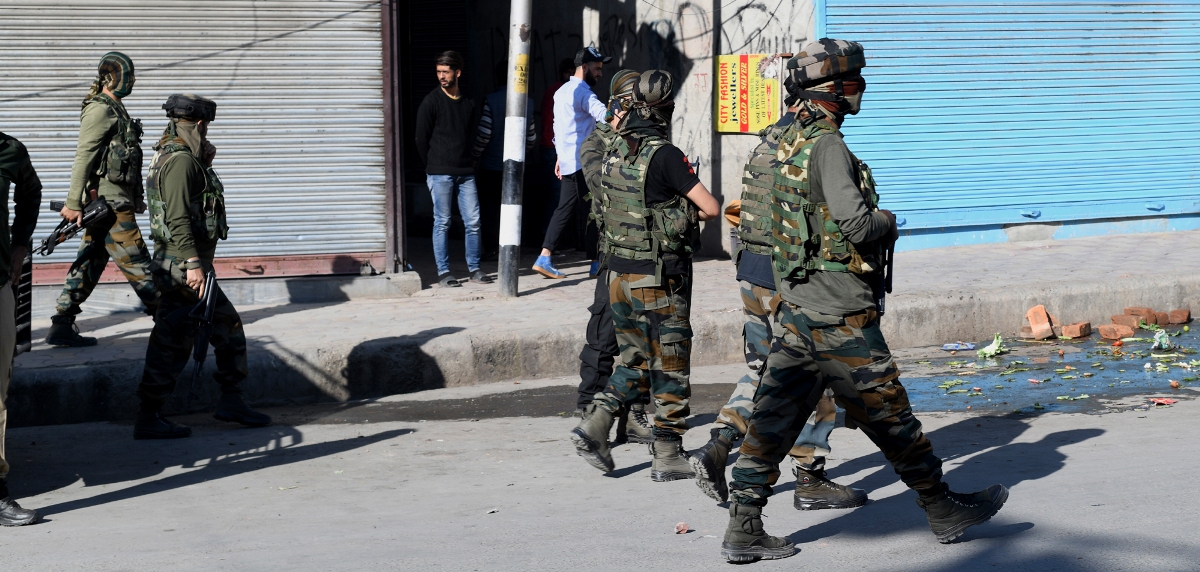SRINAGAR: It has been for a very long time that the Kashmiri reporters have romanticized the Arab dates with the Ramzan Iftaar. The fact is that it is Punjabi melons and watermelons that are in massive demand.
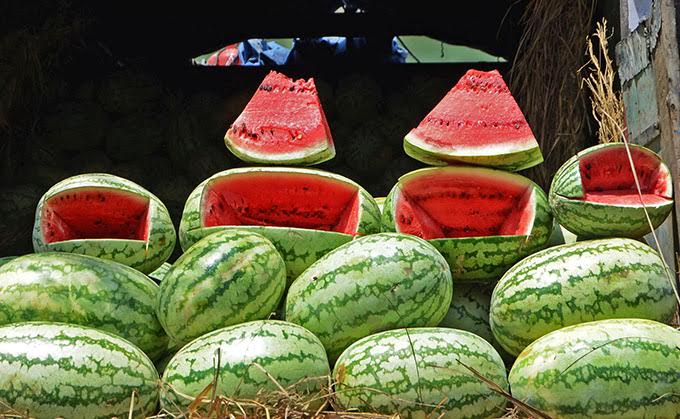
KL Image/Bilal Bhadur
“By an average Kashmir market consumes 150 truck-loads of melons including watermelons daily,” Bashir Ahmad Bashir of the Fruit and Vegetable Association Fruit Mundi said. “It is the average demand but sometimes it hoes up as demand is normally more than this.”
Right now, the water-melon and lemon is the widest fruit combination of the Iftaar. It is in use in all economic classes in addition to other fruits including dates, juices and water.
Fruit wholesalers said that the watermelon is always in demand and it has led various regions in the Indian plains to market their produce in Kashmir. “The season started with the watermelons coming from Punjab and it remains for almost a fortnight and then it starts coming from Bangalore,” one fruit merchant said. “Now this fruit is available for most of the year and Kashmir consumes a lot of it.”
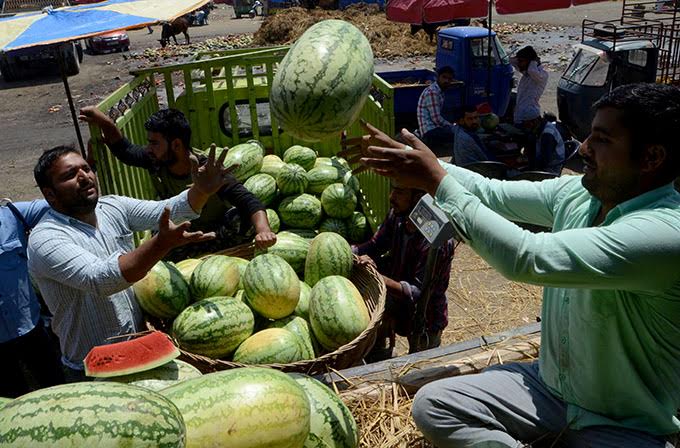
KL Image/Bilal Bhadur
Interestingly, the melons and apples have one thing in common: producers make slightly less than the trading chain. Right now the wholesale price of watermelon in Kashmir is Rs 12 a kilogram, though it is sold at Rs 20 plus in retail. Deduct the freight and it offers an idea of what the grower might be getting, per kilogram. Market sources in Punjab said the purchase rate of watermelons in Punjab right now is upward of Rs 6, per kilogram. Calculated at the market process, the melons cost Kashmir Rs 2.70 crore every evening.
Fruit dealers said the watermelon is massively more in demand that the sweet melon. “The fact is that watermelon has nothing much to do with the month of fasting,” Bashir said. “The reality is that watermelon demand shoots up massively as the temperature increases. We had a few days when mercury was down and we had sort of a glut and price fall.”
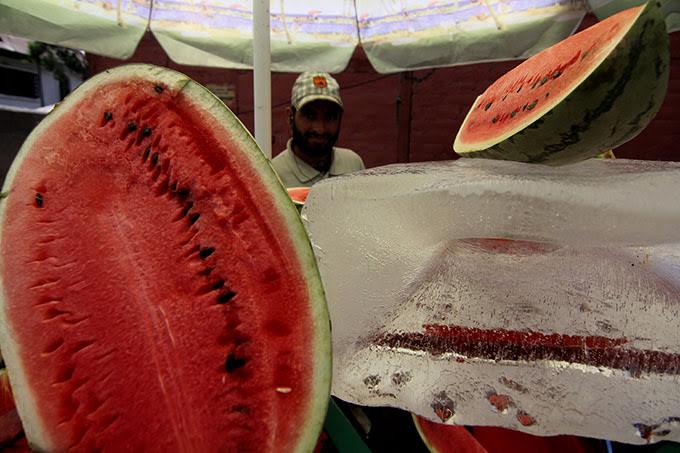
KL Image/Bilal Bhadur
The interesting part of the story is that the entire trade is with Kashmiris. “Punjabis do not market the produce to us because they have a huge and wider market just close by,” one senior trader, who is currently in Punjab, said. “Our boys go there, purchase vast swathes of melon fields and transport it to Srinagar.”
At the peak of the season, there are almost sixty Kashmiri traders in the villages of Punjab making the melon purchases. “Right now we have 20-25 boys in Punjab and every one of them is sending almost two to eight truckloads to Srinagar a day,” Mohammad Jeelani, a trader, who is also in Punjab right now said.
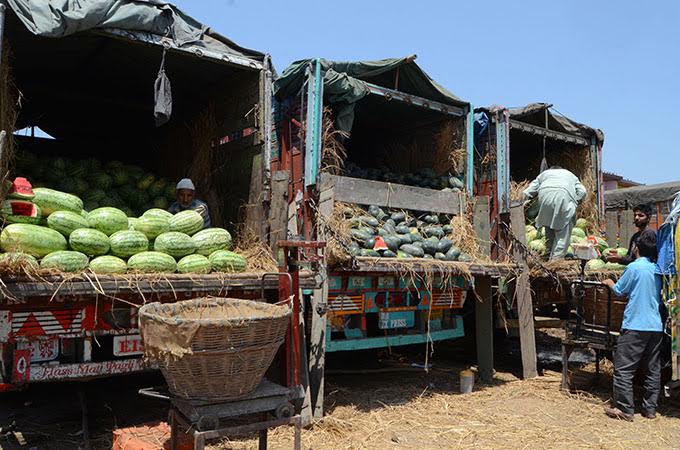 KL Image/Bilal Bhadur
KL Image/Bilal Bhadur
These Kashmiri traders staying put in Punjab periphery are mounting massive operations to keep the supply line intact. “It is a fresh fruit with a short shelf life, and we have to insulate the trucks so that the crop is not damaged during more than 600 km of transportation,” one of the traders said.
Some traders purchase fields and harvest it personally – using local labour. Some go to the local market and make purchases. “As long as the temperature is rising, we do not face much problems, but if it rains, it pains,” one trader from Punjab said. “Even a slight variation in the selling price costs us a lot.”






